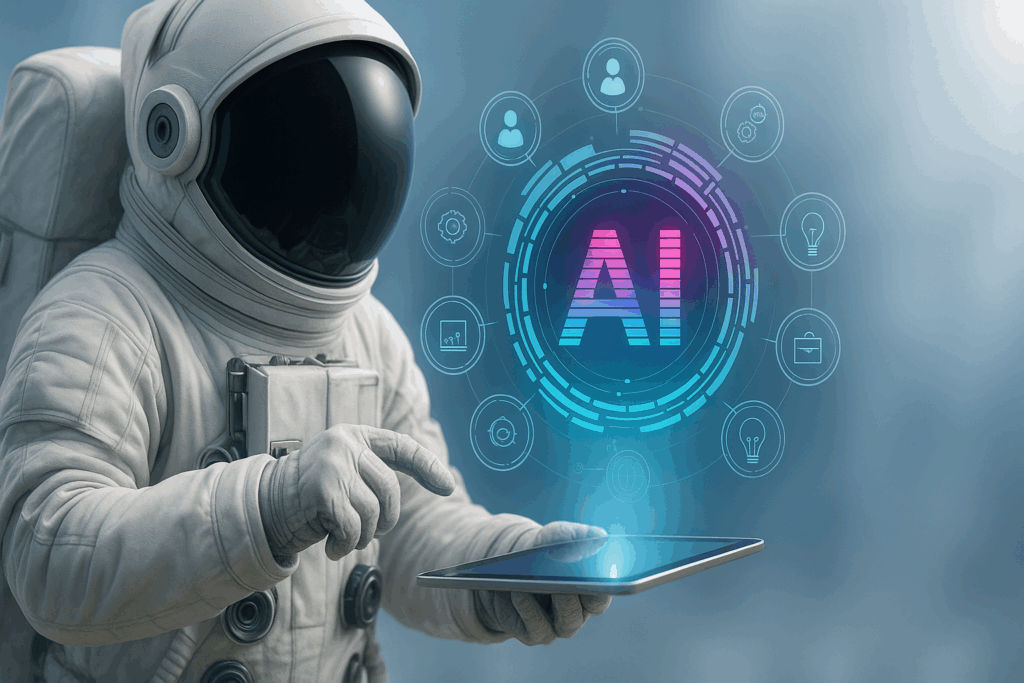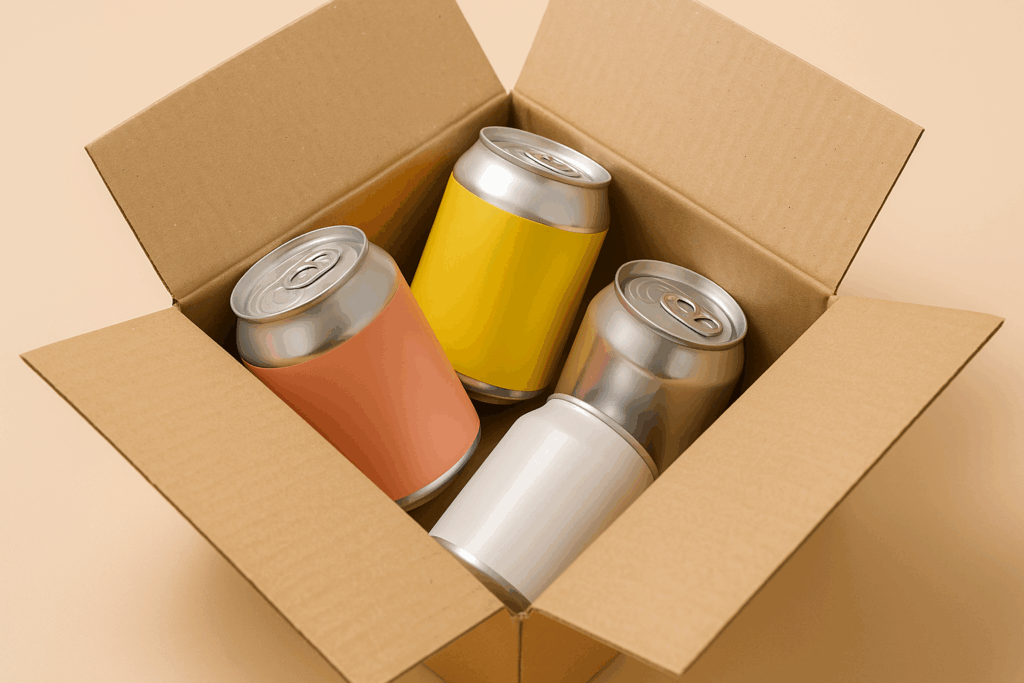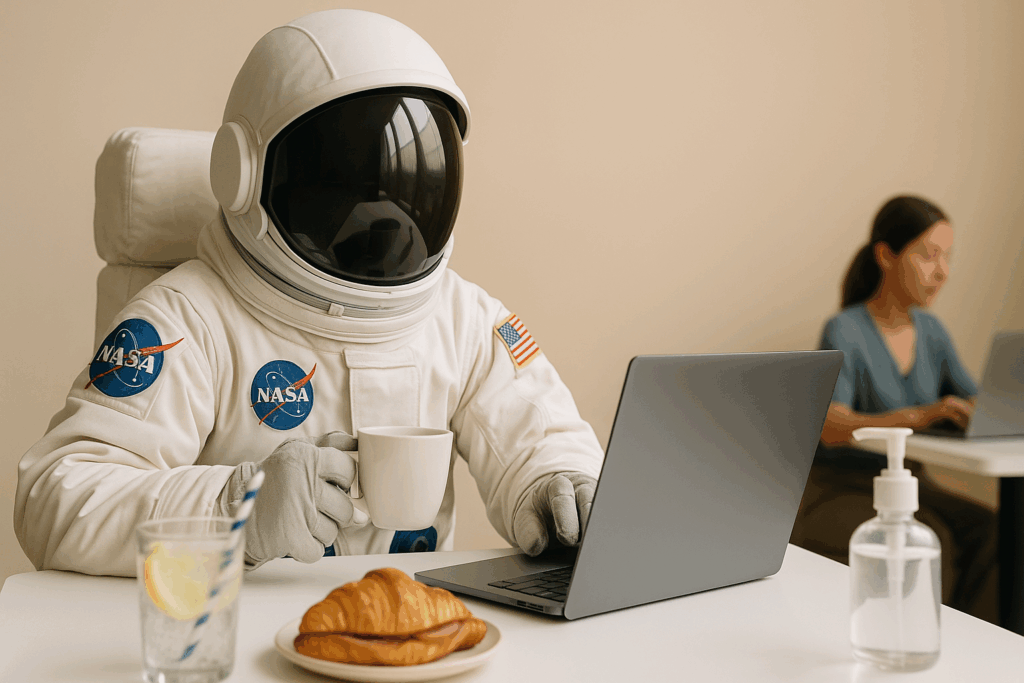A food and beverage brand isn’t just reacting to customer needs but it’s anticipating them. Predictive analytics guides product releases in real time which ensures that each new offering fits genuine market needs.
Personalized promotions powered by AI appear in front of customers when they are ready to buy which increases both engagement and revenue. This is not a distant prospect, AI it is already transforming the industry now.
For brand managers and marketers, the true question is, “Will you use AI and automation to shape the future of food and beverage marketing, or will your competitors take the lead?
How AI Transforms the Food & Beverage Marketing
AI has changed the marketing playbook for F&B brands, changing from automated to predictive and prescriptive approaches. Instead of depending only on human intuition, marketers are now using machine learning systems to understand consumer preferences, optimize campaigns and eliminate ad waste.
For example, Starbucks Deep Brew used an AI-powered personalization engine that tailors product recommendations and offers to millions of customers depending on their previous purchases, weather and even time of day. Similarly, Domino’s Pizza also uses AI-powered chatbots and voice ordering to streamline consumer interactions while collecting data for more focused promotions.
AI is also transforming how brands manage content creation and digital advertising. Food & beverage marketing campaigns can now use AI to:
- Predict Consumer Trends
- Automate Campaign Optimization
- Personalize at Scale
- Enhance Visual Marketing
How F&B Brands Are Leveraging AI
AI is transforming the food and beverage industry by reshaping product development, operations and customer engagement. It speeds up product innovation by predicting which ideas will do well. Brands are also using cloud-based platforms and AI-powered apps to combine operations and marketing which results in data-driven campaigns instead of guessing.
In quality control, Vision AI provides consistency, just like how Heineken uses it in bottling operations to prevent flaws and safeguard its reputation. On the promotional side, programmatic advertising and sentiment analysis help brands like Coca-Cola test creative AI-driven campaigns with precision targeting.
AI also strengthens supply chains by aligning stock with promotions just like how Unilever monitors inventory in real time to avoid shortages. According to Business Insider, AI is also revolutionizing cold-chain logistics through predictive algorithms that enhance safety, forecasting and efficiency in temperature-sensitive operations.
Benefits of AI in the Food & Beverage
- Strengthening Food Safety and Security: Food safety is not only a regulatory requirement but also a brand trust factor. AI is helping F&B brands detect risks faster and respond more effectively. Machine learning models can monitor production lines for signs of contamination, while blockchain-backed traceability ensures every ingredient can be tracked from farm to fork.
- Improved Production and Quality Control: Quality is non-negotiable in the F&B industry. AI-powered sensors and vision systems are now capable of spotting imperfections far more accurately than the human eye. This means fewer defective products reaching shelves and greater consistency across large-scale production.
- Ensuring Nutrition and Regulatory Compliance: Keeping up with ever-changing food regulations and nutritional standards can be overwhelming. AI tools automate compliance by analyzing product data and generating accurate labels, ingredient lists and allergen warnings.
- Optimizing Food Supply Chains: Inefficient supply chains lead to both food waste and revenue loss. AI addresses this by forecasting demand more accurately by helping brands manage inventory and distribution in real time. Predictive analytics can anticipate spikes in demand whether due to seasonal changes, cultural events or unexpected market trends.
- Driving Innovation in Food & Beverage: AI doesn’t just optimize existing systems but it sparks creativity. By analyzing social media conversations and consumption data, AI helps identify emerging trends and consumer desires.
Challenges of Implementing AI in Food & Beverage
- Data Management and Security Issues: Gathering customer and supply chain data brings the risk of breaches. Brands must invest in cybersecurity and transparency to maintain trust.
- Upgrading Legacy Systems: Many F&B businesses operate with outdated systems. Integrating AI requires significant infrastructure investment which can be a challenge for smaller brands.
- Shortage of Skilled Talent: AI expertise is limited and even the best tools are underutilized without skilled personnel.
- Aligning AI with Business Objectives: Successful implementation necessitates alignment with specific corporate goals such as improving sustainability, increasing consumer engagement or lowering expenses.
The Future of AI in Food & Beverage
Automation and artificial intelligence are now necessary to remain competitive in the food and beverage industry. AI is changing how brands function and interact with customers in a variety of ways, from food safety and compliance to highly customized marketing efforts.
Brands that integrate human creativity with data-driven intelligence will be the ones of the future. The question is, will your brand use AI to drive the next wave of food and beverage marketing, or just to stay competitive?
Are you prepared to use AI-powered strategies in your marketing for food and beverage? To learn more about tailored solutions that promote quantifiable progress, get in touch with MAVRK Studio.





